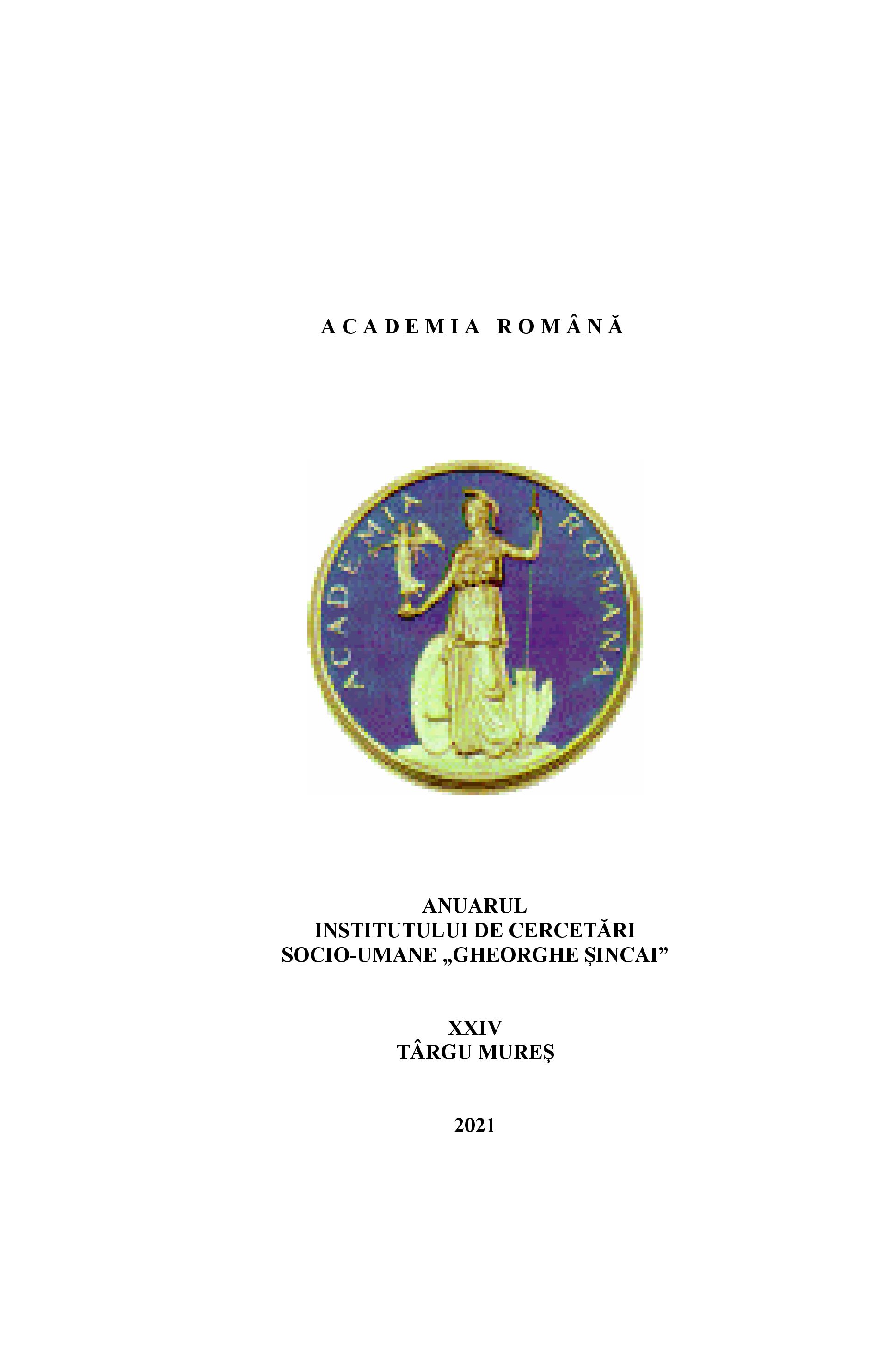La diplomazia culturale e la creazione degli istituti culturali romeni in Italia nel periodo interbellico
Cultural diplomacy and the creation of Romanian cultural institutes in Italy in the interwar period
Author(s): Roxana MihalySubject(s): Cultural history, History of ideas, Interwar Period (1920 - 1939)
Published by: Institutul de Cercetări Socio-Umane Gheorghe Şincai al Academiei Române
Keywords: Cultural diplomacy; cultural elites; Accademia di Romania; Istituto Romeno di Cultura e Ricerca Umanistica; identità; Biennale di Venezia; Italia;
Summary/Abstract: . Diplomatic relations between Romania and Italy began at the end of the Romanian War of Independence in 1878, Italy recognizing Romania's sovereignty a year later. In this context, diplomatic relations were established at the level of the Legation and at the end of 1879 Italy would accredit Count Giuseppe Tornielli-Brusati di Vergan in Bucharest as Extraordinary Envoy and Minister Plenipotentiary. As for the cultural-diplomatic relations of Romania in Italy in the interwar period, they started to emerge with the creation of the Romanian School in Rome. Focused on the Latinity vacation that the Romanian society fully assumed after the establishment of Greater Romania. After long negotiations with the Italian state, on 1st November 1922, the Romanian School in Rome opened its gates in the Eternal City. The first Romanian academic establishment that aimed to affirm the national cultural identity and the formation of new intellectual elites that would contribute to the development of Romanian universities. Another channel for communicating Romanian cultural values relevant to cultural diplomacy in Italy was the establishment of the Department of Romanian Language and Literature at the Università degli Studi di Roma. This was followed by the creation of the "House of the Romanian" in Venice and the purchase of a Pavilion in the Giardini della Biennale. In romanian cultural landscape, the creation of romanian institutes in Italy played a significant role in shaping diplomatic-cultural relations. The ambitious projects of the historians Vasile Pârvan and Nicolae Iorga represented the beginning of the road that would aim at the reform of the Romanian humanities, culture but also reinforcing of the relations between the two states.
Journal: Anuarul Institutului de Cercetări Socio-Umane »Gheorghe Şincai« al Academiei Române
- Issue Year: 2021
- Issue No: 24
- Page Range: 228-241
- Page Count: 14
- Language: Italian

